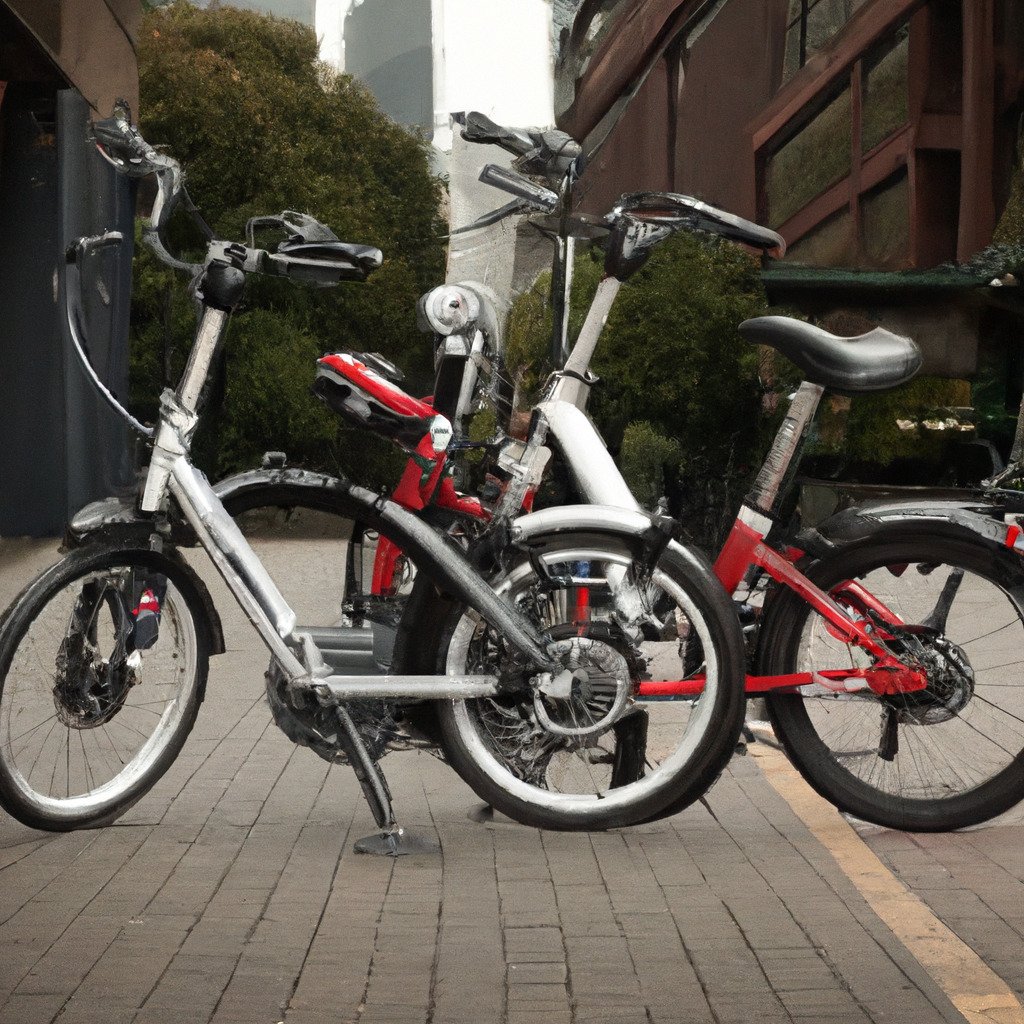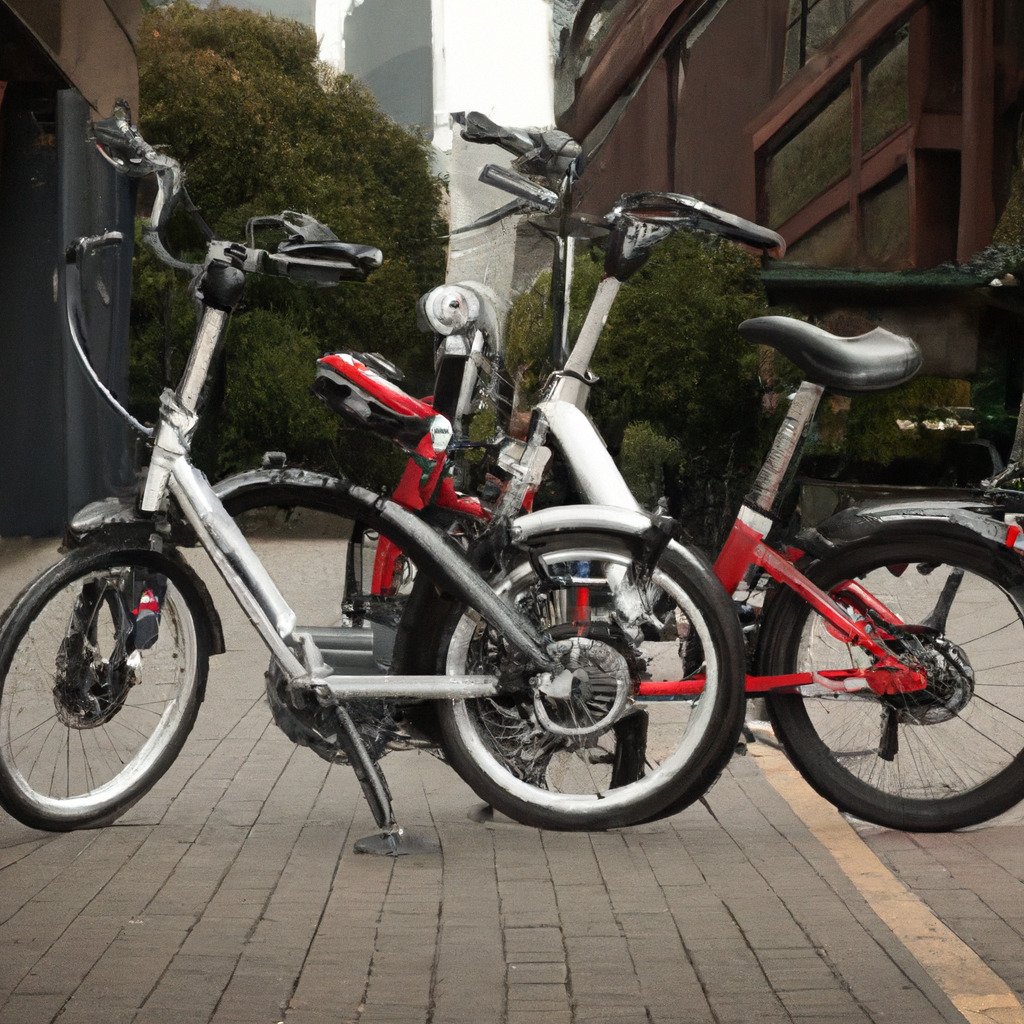
Electric bikes have been steadily gaining popularity in urban areas, revolutionizing the concept of commuting and transforming the way people navigate through bustling city streets. By seamlessly integrating electric power with traditional pedal propulsion, these innovative vehicles offer a greener and more efficient mode of transportation. In this article, we will explore the impact of electric bikes on urban mobility trends, examining how they enhance accessibility, sustainability, and overall quality of life in rapidly evolving cities.

Current urban mobility challenges
Traffic congestion
Traffic congestion is a major problem in urban areas, causing significant delays and frustration for commuters. The increasing number of cars on the roads has led to congested highways and streets during peak hours. This not only hampers the smooth flow of traffic but also leads to increased fuel consumption and greenhouse gas emissions.
Air pollution
Another significant challenge in urban mobility is air pollution. The emissions from vehicles, especially those using fossil fuels, contribute to poor air quality, leading to numerous health issues. The excessive release of pollutants into the air contributes to the deterioration of the environment and poses risks to human health.
Limited parking spaces
Urban areas face the issue of limited parking spaces, making it difficult for commuters to find a suitable place to park their vehicles. This scarcity of parking spots adds to the frustration and time wasted by drivers while searching for parking, further exacerbating the issue of traffic congestion.
The rise of electric bikes in urban areas
Increasing popularity of electric bikes
Electric bikes, also known as e-bikes, have gained significant popularity in recent years as an alternative mode of transportation in urban areas. With advancements in technology, e-bikes have become more affordable, reliable, and efficient. This has led to an increase in their adoption among commuters as a convenient and eco-friendly means of travel.
Advantages of electric bikes over conventional bikes
Electric bikes offer several advantages over conventional bikes that make them a preferred choice for urban mobility. E-bikes provide electric assistance while pedaling, making it easier to tackle steep hills and long distances. They also allow riders to travel at higher speeds without putting in excessive physical effort. Additionally, e-bikes eliminate the issue of sweating during commutes, making them a more appealing option for individuals who need to reach their destinations without being physically exhausted.
Impact on transportation methods
Shift from cars to electric bikes
The rise of electric bikes has started a shift in transportation methods, particularly in urban areas. Many commuters are now opting to use electric bikes instead of cars for their daily commutes. The convenience, cost-effectiveness, and environmental benefits of e-bikes make them an attractive option for short to medium distance travels in congested urban areas. This shift helps reduce the number of cars on the roads, alleviating traffic congestion and mitigating air pollution.
Integration into existing transportation systems
Electric bikes are also being integrated into existing transportation systems to enhance mobility options in urban areas. Some cities have implemented bike-sharing programs that include electric bikes, allowing commuters to easily access and utilize these eco-friendly modes of transportation. Integrating electric bikes with public transportation, such as buses and trains, provides a seamless travel experience for individuals, promoting multimodal transportation and reducing reliance on private cars.
Improvement of commuting experience
Reduced commuting time
Electric bikes contribute to reduced commuting time as compared to traditional bikes or cars. With their electric assistance, riders can cover longer distances in less time, bypassing traffic congestion, and taking advantage of bike lanes and alternative routes. This not only saves time for individuals but also contributes to a more efficient use of urban infrastructure.
Easier parking and maneuverability
One of the major benefits of electric bikes is their compact size, which makes parking and maneuverability much easier than cars. Electric bikes can be easily parked in designated bicycle parking areas, eliminating the need for searching for parking spots or paying for parking fees. Additionally, their smaller size allows riders to navigate through congested areas, narrow streets, and crowded traffic, thereby avoiding the hassles often associated with driving a car.

Environmental benefits
Zero emissions transportation
Electric bikes are considered zero-emissions transportation since they are powered by electricity instead of fossil fuels. By using electric bikes instead of cars, commuters can significantly reduce their carbon footprint and contribute towards mitigating climate change. The elimination of tailpipe emissions from electric bikes helps in improving air quality and reducing pollution levels in urban areas, creating a healthier and more sustainable environment.
Reduced carbon footprint
The use of electric bikes also contributes to a reduced carbon footprint due to their energy-efficient nature. Electric bikes require considerably less energy than cars or motorcycles, resulting in lower overall energy consumption. This helps reduce the demand for fossil fuels and decreases greenhouse gas emissions, thereby mitigating the effects of climate change.
Health and wellness
Promoting physical activity
Electric bikes encourage physical activity by providing a combination of electric assistance and pedaling. While riders can rely on the electric motor for assistance, they still engage in physical activity by pedaling to some extent. This promotes a sedentary lifestyle and helps individuals incorporate exercise into their daily routines.
Health benefits of cycling
Cycling, whether on a conventional bike or an electric bike, offers numerous health benefits. Regular cycling helps improve cardiovascular fitness, strengthens muscles, increases endurance, and aids in weight management. The low-impact nature of cycling also makes it a suitable exercise for individuals of all ages and fitness levels. By incorporating electric bikes into their commute, individuals can enjoy these health benefits while traveling to work or running errands.

Economic impacts
Cost savings for individuals and governments
Electric bikes offer substantial cost savings for both individuals and governments. For individuals, the cost of owning and maintaining an electric bike is significantly lower than that of a car. Electric bikes require minimal maintenance and have lower operating costs, including lower fuel costs. Governments can also benefit from the widespread adoption of electric bikes by reducing the costs associated with road infrastructure, parking facilities, and healthcare expenses related to pollution-related health issues.
Increased revenue for electric bike industry
The rise in popularity of electric bikes has created a thriving industry. The increased demand for electric bikes has resulted in a surge in manufacturing, retail, and service sectors dedicated to electric bikes. This has led to job creation and increased revenue for businesses involved in the production, distribution, and maintenance of electric bikes.
Challenges and barriers
Infrastructure limitations
While electric bikes offer several advantages, one of the key challenges is the need for adequate infrastructure to support their use. This includes the development of dedicated bike lanes, bicycle parking facilities, and charging stations. The lack of proper infrastructure can discourage potential users from adopting electric bikes as a viable mode of transportation.
Safety concerns
Safety concerns also pose a barrier to the widespread adoption of electric bikes. It is crucial for riders to adhere to traffic rules, wear appropriate safety gear, and be aware of their surroundings. Additionally, there is a need for increased awareness among motorists about sharing the road with electric bike riders. Implementing safety campaigns and educating both riders and drivers can help address these concerns and ensure the safe integration of electric bikes into urban mobility.
Resistance from traditional transportation stakeholders
The rise of electric bikes may face resistance from traditional transportation stakeholders, including car manufacturers, oil companies, and public transportation providers. The shift towards electric bikes can disrupt established interests and business models, potentially leading to resistance. Collaborative efforts and dialogue among stakeholders are essential to overcome these obstacles and promote the adoption of electric bikes as a sustainable mode of urban transportation.

Influence on urban planning and policies
Bike-friendly infrastructure initiatives
The emergence of electric bikes has influenced urban planning and policies, leading to a greater emphasis on creating bike-friendly infrastructure. Cities are incorporating dedicated bike lanes, installing bicycle parking facilities, and redesigning intersections to ensure the safety and convenience of electric bike riders. These initiatives promote the integration of electric bikes into the existing urban transportation fabric and encourage more individuals to choose this sustainable mode of travel.
Development of electric bike-sharing programs
The popularity of electric bikes has driven the development of electric bike-sharing programs in many cities. These programs allow individuals to access electric bikes for short-term rentals, providing them with a convenient and cost-effective means of transportation. Electric bike-sharing programs reduce the need for personal ownership, promote the sharing economy, and encourage the widespread use of electric bikes in urban areas.
Emerging business opportunities
Growth of electric bike manufacturing industry
The rise of electric bikes has created substantial business opportunities in the manufacturing sector. As the demand for electric bikes continues to grow, manufacturers are investing in research and development to produce innovative and high-quality electric bike models. This growth in the manufacturing industry not only provides employment opportunities but also contributes to the overall economic growth of a region or country.
Expansion of electric bike retail and service sector
The increasing popularity of electric bikes has also led to the expansion of the retail and service sector dedicated to electric bikes. Electric bike retailers are catering to the needs of the growing customer base by offering a wide range of electric bike models, accessories, and related services. The development of specialized electric bike service centers ensures that riders have access to maintenance and repair services, further supporting the widespread adoption of electric bikes.





















